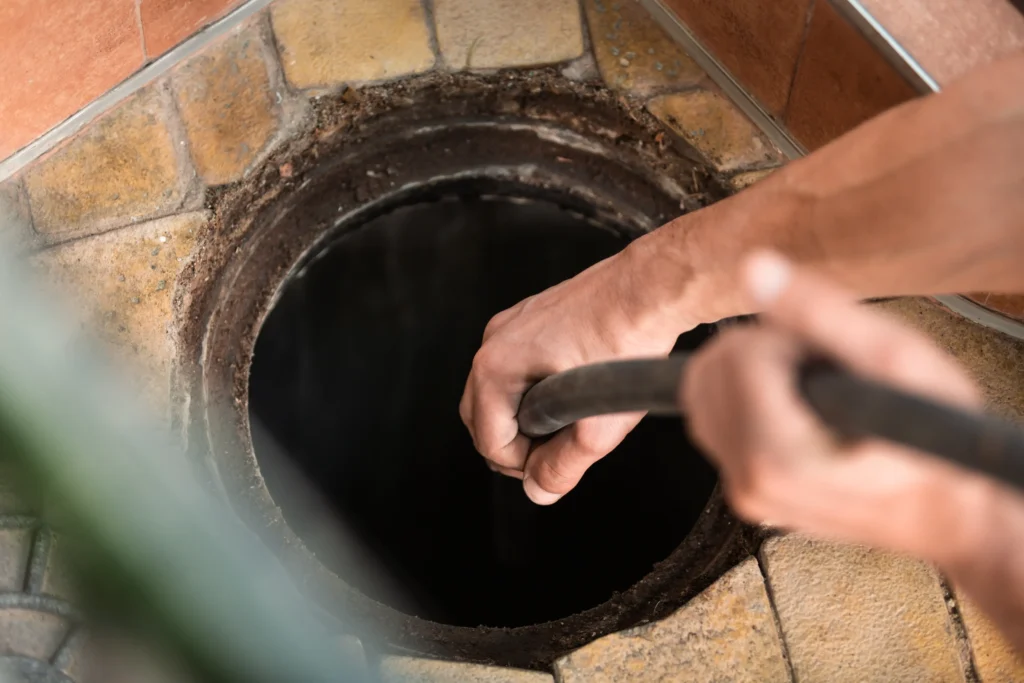A strong, unpleasant odor in your yard is more than just a nuisance—it’s often a sign of a serious issue brewing beneath the surface. When your property starts to smell like sewage, it’s critical to act quickly. This odor is not just disruptive; it’s a warning sign that something in your septic system or sewer line is failing.
In this guide, we’ll break down the most common causes of sewage smells in your yard, how to identify them, and what you can do to fix the problem before it leads to costly damage or health hazards.
1. A Full or Overloaded Septic Tank
One of the leading reasons your yard might smell like sewage is a septic tank that hasn’t been pumped on schedule. Over time, solid waste builds up inside the tank. If it’s not pumped regularly, the waste levels rise too high, and gases begin to escape through the soil or even back into your home.
Common symptoms of a full tank include:
- Foul odors around the yard
- Pooling water near the drain field
- Gurgling sounds in plumbing
- Slow drainage indoors
If your tank hasn’t been pumped in the last 3 to 5 years, there’s a strong chance this is the root of the smell.
2. Damaged or Cracked Sewer Line
If your property is connected to a municipal sewer line, a crack or break in the pipe running from your home to the street can release raw sewage into your soil. This issue can produce a strong, persistent smell, especially in a localized area of your yard.
Signs of a damaged sewer line:
- Sunken or soggy ground in one area
- Sewage smell concentrated near the break
- Foundation issues or water damage in the basement
- Increase in pests or flies near the location
This issue requires immediate attention from a licensed plumber or sewer contractor.
3. Failing Drain Field
If you have a septic system, the drain field is responsible for filtering wastewater into the soil. When it becomes clogged or saturated with excess water, untreated effluent can rise to the surface—carrying with it a potent sewage smell.
Drain field failure may result from:
- Overuse of water in the home
- Driving or building on top of the field
- Poor soil absorption due to compaction or tree roots
- A lack of routine septic maintenance
A failing drain field is a serious issue that may require complete replacement, so identifying it early is key to avoiding expensive repairs.
4. Broken or Clogged Sewer Vent Pipe
Every home has a venting system that allows sewer gases to escape safely through a pipe on the roof. If that pipe becomes blocked, broken, or improperly installed, gases may seep out into your yard or leak back into your home.
Symptoms of vent pipe issues include:
- Strong sewage smell near the foundation
- Occasional indoor odors
- Gurgling toilets or drains
- Slow draining sinks or tubs
In many cases, a plumber can quickly identify and fix the venting issue to restore proper airflow and eliminate the smell.
5. Improper Grading or Poor Yard Drainage
Sometimes, it’s not your plumbing—it’s your landscape. If your yard doesn’t drain properly, rainwater and wastewater can pool above underground septic components. This standing water, combined with bacteria and organic matter, can create foul-smelling areas, especially in warmer temperatures.
Signs of drainage-related smells:
- Smell appears after rainfall or snowmelt
- Standing water remains for days
- Yard remains soft or squishy in dry weather
- Odor fluctuates with humidity levels
Improving yard grading or installing French drains may solve this issue and protect your system from over-saturation.
6. Leaky Septic Tank Components
Cracks in your septic tank or damaged access covers can allow gases and untreated wastewater to seep into the surrounding soil. Over time, this can contaminate your property and cause persistent sewage smells near the tank location.
Check for:
- Wet ground around the tank even without rain
- Tank lid that doesn’t seal properly
- Rusted, loose, or broken risers or covers
- Evidence of insects or rodents near the tank
Leaky tanks are dangerous and should be evaluated by a septic professional immediately.
7. Overuse of Household Cleaners and Chemicals
Flushing or draining high volumes of bleach, ammonia, or antibacterial cleaners can kill the beneficial bacteria in your septic system. Without these bacteria, solid waste doesn’t break down properly, leading to build-up and foul gas emissions.
Avoid flushing:
- Harsh chemicals
- Grease and oils
- Paint or solvents
- Medications
Use septic-safe cleaners and natural alternatives to keep your system balanced and functioning as it should.
8. Animal Waste and Outdoor Plumbing
Occasionally, pet waste or decaying organic matter in your yard can mimic the smell of sewage. While not a plumbing issue, this can become a problem if it builds up near areas with poor drainage.
Also, inspect:
- Outdoor sink or shower drains
- Broken irrigation pipes
- Dog run or kennel areas
If cleaning the area removes the odor, your plumbing may not be the culprit—but it’s still important to monitor the site over time.
How to Diagnose the Source of the Sewage Smell
To find the exact cause, we recommend:
- Walk your property slowly, noting where the smell is strongest.
- Inspect the area around your septic tank, sewer cleanout, and drain field.
- Look for visual signs like puddles, greener grass, or soft ground.
- Record when the smell occurs—only after rain, all the time, or only indoors?
- Check your maintenance history—when was your tank last pumped or inspected?
Providing this information to a professional makes diagnosis quicker and more accurate.
When to Call a Professional
If you’re dealing with a sewage smell outside and can’t identify the source, it’s time to call in a licensed septic or sewer expert. They’ll conduct a full inspection, which may include:
- Camera inspection of sewer lines
- Tank pumping and sludge level measurement
- Pressure testing of vent pipes
- Soil absorption tests for your drain field
- Gas leak detection
Early detection and professional intervention prevent damage to your home, protect your family’s health, and save you money in the long run.
Preventing Future Odors
Once the issue is resolved, ongoing care and maintenance are key. We recommend:
- Pumping your septic tank every 3–5 years
- Inspecting your system annually
- Avoiding non-flushable materials
- Keeping tree roots away from the drain field
- Redirecting gutters and runoff from the system
- Using water efficiently throughout your home
These habits ensure your system functions properly and prevents future sewage odors in your yard.
Don’t Ignore the Smell
A sewage smell in your yard is never normal. It’s a red flag that something is wrong—either with your septic system, sewer line, or soil drainage. Acting quickly can prevent health hazards, expensive repairs, and environmental damage.
If you’re smelling sewage on your property, schedule a septic inspection or sewer line evaluation today. Your home, your yard, and your family’s safety depend on it.
#SewageSmellInYard #SepticSystemCare #DrainFieldProblems #SepticMaintenanceTips #YardOdorSolutions

